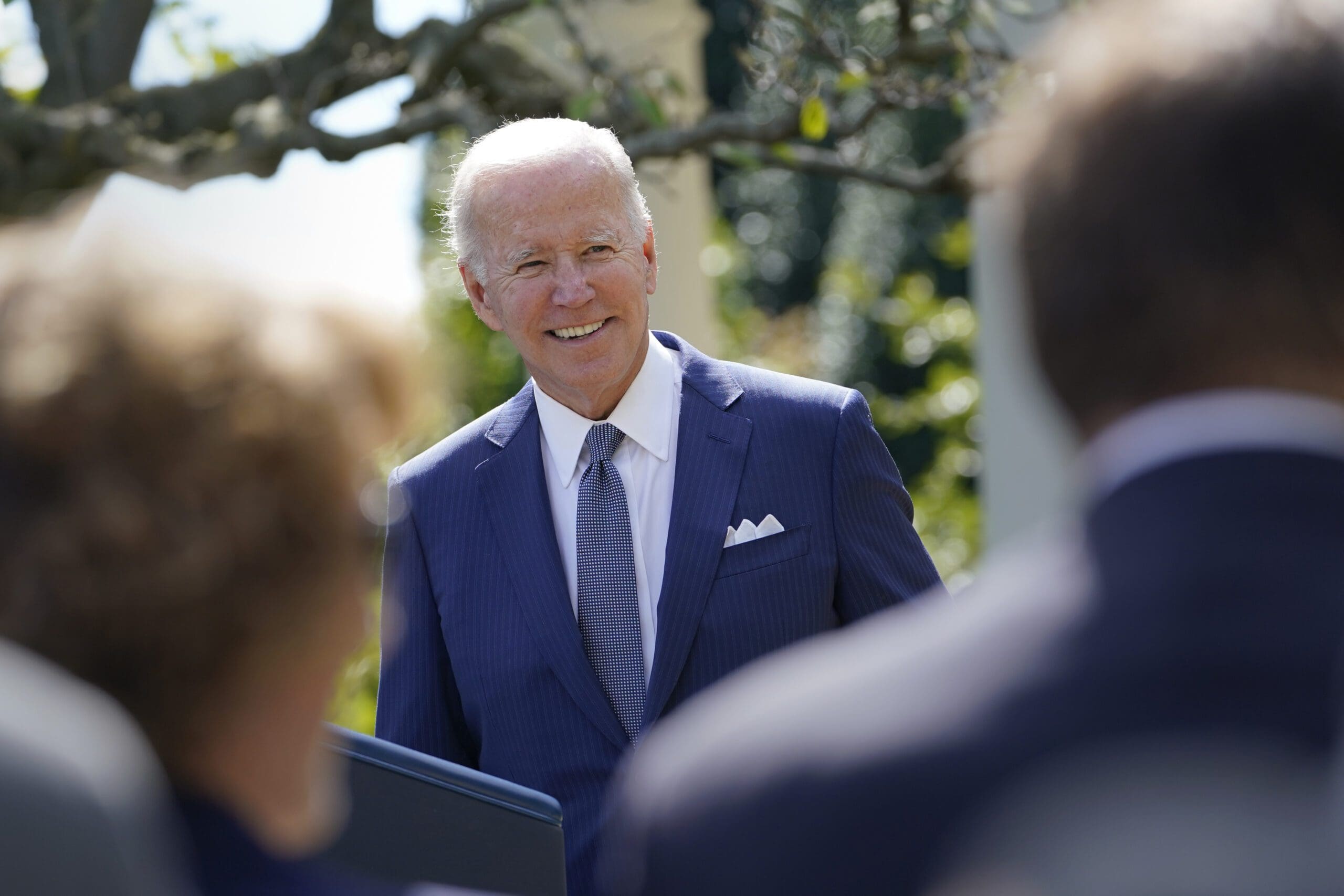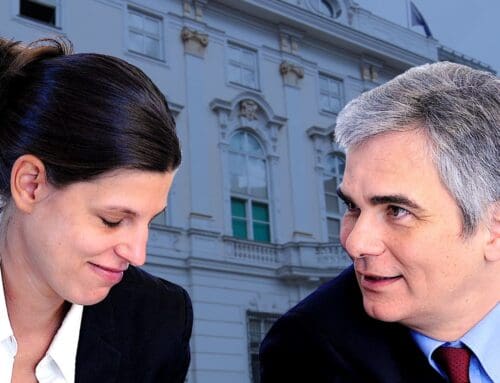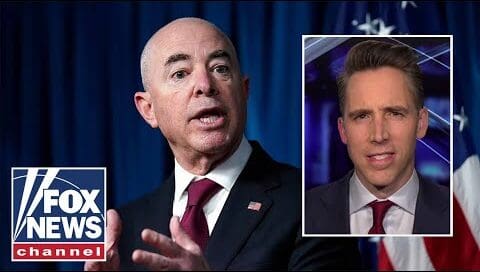
Biden’s campaign mission: Take on Republicans — from a distance

The storm bearing down on Florida forced President Joe Biden to scrap plans to deliver a politically-charged speech in the state. But he campaigned anyway, from behind a podium in the Rose Garden.
Biden criticized Sen. Rick Scott (R-Fla.) for wanting to endanger Medicare and Social Security; and he laid into House Minority Leader Kevin McCarthy for offering an election year blueprint with “little or no detail.”
“Last week, the Republican leader of the House unveiled what he called the ‘Commitment to America,’” Biden said in his speech Tuesday from the Rose Garden, adding, “God bless America.”
The moment may have been refashioned by Hurricane Ian. But it reflected the approach the White House hopes to adopt less than six weeks before the midterms. The president has eased into a familiar cadence: He’s raising cash for Democrats and echoing the big-picture themes the party wants emphasized; he’s doing just enough to stay visible, but not so much that he becomes a heavier anchor.
Biden is aware — and increasingly comfortable — with the reality that he isn’t wanted everywhere. White House officials are supplementing his campaign travel with events closer to home they believe still allow him to respond to Republicans and capitalize on the bully pulpit.
But they’re not in the business of taking too many chances. Biden himself has, to this point, been comfortable with the lighter public footprint, telling advisers that what matters is holding onto the Senate and that, if he would do more harm than help in certain races, he’d stay away. That’s an evolution from earlier this year, when the president hit a low-water mark, and he complained to aides that he was not in demand on the campaign trail, pointing to his successful efforts as a draw and even a closer in 2018, particularly in tight contests.
Biden received a pep talk from former President Bill Clinton in May in which the former president urged the current officeholder to do more selling of what his team had done. It was a reunion of sorts for two men who had spoken ahead of the 2010 midterms and developed something of a plan for the Democratic Party to defy the odds and hold on to its congressional majorities, only to see vast aspects of it ignored or changed to a point of being unrecognizable.
Twelve years later, Biden has embraced the idea of being helpful at a 30,000-foot level, sharpening his attacks in speeches to paint the Republicans writ large as out of touch and extreme. That, in turn, means more macro type engagement than swings on the campaign trail.

“This is a tale as old as time. They have the same problem on the other side with Trump — do Republicans really want to stand with him?” said Claire McCaskill, former Democratic senator from Missouri, noting that Presidents Barack Obama and George W. Bush were also at times asked to stay away from tight races.
“Districts that are truly swing districts are won by the candidate that stays local, that can avoid national narratives,” said the former senator, who also kept her distance from Obama during her unsuccessful re-election bid in 2014. “If you are in a swing state or district, the last thing you need is a reminder of a polarizing figure in your party.”
Biden’s imprint on the midterms is more acute in the barrage of TV ads that have run in the late-summer-early fall sprint to the November elections. Between Aug. 1 and last Thursday, Republicans mentioned Biden in 120,000 ads with a total spend of nearly $54 million, according to an analysis prepared for POLITICO by the ad-tracking firm AdImpact.
Over that same time period in 2018, Democrats mentioned Trump in 68,000 ad airings backed by $30 million in spending.
Chris Hartline, the top spokesman for Scott and the National Republican Senatorial Committee, said Biden is weighing in from on-high for one reason, and everything else is merely spin: He’s shunned by most Democratic Senate candidates. Hartline said it’s become clearer that nationalizing races likely helps the GOP — and that a lot of Democrats “rightly believe that the only way they can win is if their brand is completely independent of the Washington Democrats.”
“The way that you deploy a president like Joe Biden, who is as unpopular as he is with Republicans and independents, is to try to juice turnout,” Hartline said of the strategy. “But it seems like he can’t see himself, and the White House won’t let people see him, as somebody who appeals to just the progressive base. They have to keep portraying him and pretending that he is a politician that has a broader appeal when the fact is he just doesn’t right now.”
Biden’s schedule of late has been relatively light on campaigning. And when he does make out-of-town speeches, they are pegged to legislative accomplishments. Aides said that Biden will soon start averaging about two trips a week, with more in the final fortnight before the election. While final decisions have not been made about an itinerary, he will likely continue to favor visiting the Rust Belt — he has already made multiple trips to Michigan, Wisconsin, Pennsylvania and Ohio — over further-off locales. There remains the possibility of a Western swing.
Some of Biden’s non-campaign events have offered fellow Democrats enough policy grist to make showing up worthwhile. They also reflect the kind of gatherings endangered House and Senate candidates have explicitly told the White House they view as most helpful to them.

In some respects, Biden’s hardest work in the midterms was done weeks ago. Tom Perriello, a former Democratic congressman from Virginia who lost his seat in the 2010 cycle, said he was struck by how frontline Democrats excitedly tweeted out photos of themselves at the White House’s celebration for the massive climate and health care package. “That was not something you saw in 2010,” he said. “This was a point at which everyone was starting to abandon [Barack] Obama — other than a few of us.”
Perriello is familiar with the dynamic. He was one of the few endangered members of Congress for whom Obama campaigned in the close of that 2010 midterm election; choosing to fully embrace the then-president and his agenda in hopes it turned out the base vote. It worked, but not enough. Perriello lost his campaign.
“I think President Biden has played a huge role in turning this into a choice election, pointing out the extremism of the other side and demonstrating the steady progress the Democrats represent, including directly on making the ‘American dream’ affordable again,” Perriello said. “And I think he did that largely before Labor Day in a way that has created a landscape that allows very strong Democratic candidates to close the deal in their individual races.”
White House aides are quick to note that even when a candidate eschews a visit from the president, they almost always invoke his record even if not his name. And party officials say the decision is ultimately being left to the candidates themselves.
“If it makes sense for a candidate to appear with him, he’ll campaign with him. If not, he won’t,” said Adrienne Elrod, a Democratic strategist with close ties to the White House. “Each candidate will make a decision based on the shape of their own race: sometimes you run with Washington, sometimes against.”
Visits to swing districts from national figures, strategists believe, can be useful in terms of generating voter registration and base enthusiasm. But Biden also recognizes that presidents are inherently polarizing, recalling previous cycles when Democrats wanted him on the trail rather than Obama.
Still, Biden has made clear that he’s been itching to be on the road more, even if not to appear with specific candidates. He believes that he is the best messenger to tout his administration’s work as well as take on what he has deemed as “MAGA Republicans.”
Still, the White House’s plan to get Biden on the road more has continued to happen in fits and starts. Last week, domestic politics took a backseat to international affairs, as Biden went to London for Queen Elizabeth’s funeral and then to New York for the United Nations General Assembly. Florida, which was called off due to an approaching hurricane, was the only political trip planned for the week.







